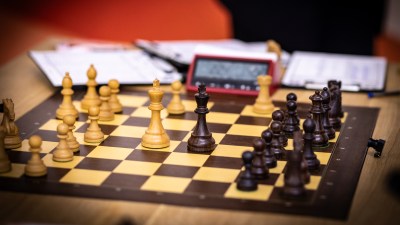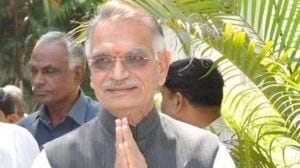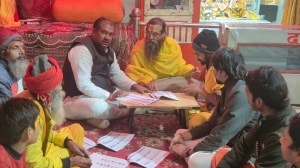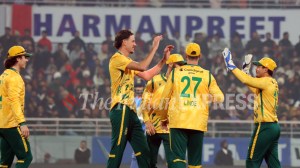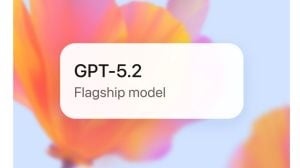In the 1971 Lok Sabha polls, incumbent prime minister Indira Gandhi defeated Raj Narain, a candidate of Ram Manohar Lohia’s Samyukta Socialist Party, from Rae Bareli. The margin of defeat was massive, with the Congress leader getting 1,83,309 votes compared to Raj Narain’s 71,499.

However, Raj Narain challenged the result in the Allahabad High Court, accusing Mrs Gandhi of electoral malpractice. It was alleged that Mrs Gandhi’s election agent Yashpal Kapoor was a government servant and that she had used government officials for personal election-related work.
A freedom fighter, wrestler and a maverick politician, who had been an MLA in the Uttar Pradesh Assembly, Raj Narain was known to be a serial protester, landing in jails after Independence while protesting against different governments.
On February 17, 1975, Indira Gandhi became the first sitting PM of the country to appear before a court. She was accompanied by Rajiv Gandhi and Sonia Gandhi. In Raj Narain’s corner were Opposition stalwarts such as Rabi Ray, Jyoti Basu, Madhu Limaye and Piloo Modi.
In his book The Case That Shook India, activist-lawyer Prashant Bhushan writes that Justice Jagmohanlal Sinha of the High Court provided Mrs Gandhi a chair to sit, against the usual practice of a person giving testimony standing in the witness box.
Bhushan writes that this was done in consultation with Raj Narain’s lawyer Shanti Bhushan, Prashant Bhushan’s late father. Shanti Bhushan was with the Congress (O), which had been formed by leaders who had rebelled against Indira Gandhi.
Story continues below this ad
Even on the day Mrs Gandhi appeared before the High Court, Raj Narain was arrested in Faizabad (now Ayodhya).
Finally, on June 12, 1975, Justice Sinha found Mrs Gandhi guilty. He declared the Rae Bareli seat result of 1971 “null and void”, and barred Mrs Gandhi from holding elected office for six years.
The verdict added to the clamour against the Indira government, which was facing protests from different corners – including Opposition parties that had been united by Jayaprakash Narayan, student movements that had started from Gujarat and Bihar separately and were rapidly gathering momentum, and a railway strike.
Mrs Gandhi went in appeal against the High Court order to the Supreme Court, where a vacation judge, Justice V R Krishna Iyer, heard the issue and on June 24, 1975, stayed the judgment, but in part. The Court allowed Mrs Gandhi to continue as PM, but she was barred from taking part in parliamentary proceedings and drawing a salary as an MP.
Story continues below this ad
The next day, on June 25, 1975, Mrs Gandhi declared the Emergency. Opposition stalwarts were among thousands of people put in jail under the government crackdown that followed, even as the protests against Mrs Gandhi and the criticism of her measures kept growing.
Finally, after 19 months, Mrs Gandhi announced elections. Bringing the Emergency chapter to a close, the Janata Party, a coalition of disparate parties from the Socialists to the Jana Sangh, came to power.
Mrs Gandhi lost to Raj Narain from Rae Bareli by more than 50,000 votes.
1978
Having lost from Rae Bareli, Mrs Gandhi got elected to the Lok Sabha from Chikmagalur in Karnataka in a by-poll in November 1978. She won by 77,333 votes, defeating the Janata Party’s Veerendra Patil.
Story continues below this ad
The Morarji Desai-led Janata Party government moved a resolution against her for breach of privilege within days of her win. She was accused of breach of privilege and contempt of the Lok Sabha for obstructing four government officials from collecting information for a question on Maruti tabled in 1975. A debate on the resolution started on December 8, 1978, and it was passed within less than a fortnight, with 279 MPs voting in favour, 138 against, and 37 abstaining.
Mrs Gandhi’s Lok Sabha membership was stripped and she was sentenced. The defiant Congress leader declared that she would serve her time in the Tihar Jail, becoming the first MP to be sentenced to jail by the House.
She spent less than a week in jail, but by the time she was released on December 26, 1978, the tide was already turning in Mrs Gandhi’s favour. Supporters hit the streets in protest against her sentencing, with even an Indian Airlines being hijacked, even as the contradictions within the Janata Party coalition made its government untenable. The government eventually fell as its different power centres jostled for supremacy, and in the 1980 Lok Sabha elections, an Indira Gandhi-led Congress stormed back to power with absolute majority.
It won 353 seats on its own – one more than what it had got in 1971, and more than double of the 153 seats it had won in 1977.
Story continues below this ad
In what would prove to be her last election, Mrs Gandhi won from Rae Bareli with almost 50 per cent more votes than her opponent.
2006
Congress president Sonia Gandhi famously renounced the post of PM after a coalition led by the party stunned the BJP by winning the Lok Sabha elections in 2004. Sonia was instead appointed chairperson of the National Advisory Council (NAC), a group of experts set up to advise the Manmohan Singh-led government on key issues.
The NAC was criticised by the Opposition for being an extra-constitutional, unelected body that wielded extraordinary clout. Sonia herself faced allegations of holding an “office of profit” post, despite being a Lok Sabha member. Even as a complaint was under consideration of the Election Commission, Sonia resigned as the Rae Bareli MP as well as chairperson of the NAC on March 23, 2006.
Within a few months, she contested again from Rae Bareli and was re-elected by a record margin of 4.17 lakh votes. All her opponents, including BJP general secretary Vinay Katiyar, lost their security deposits.
Story continues below this ad
The term of the first NAC ended in 2008, and in 2010, Sonia was reappointed as chairperson of the second NAC, after the UPA returned to power.




